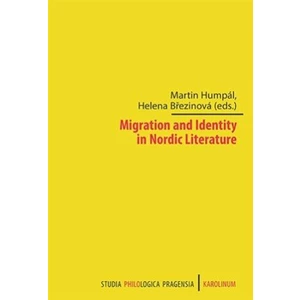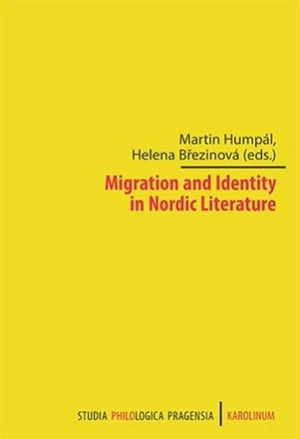The book Migration and Identity in Nordic Literature focuses on migration as it has manifested itself in literature and culture in the nineteenth, twentieth and early twenty-first centuries in Denmark, Norway, Sweden, Finland, and Iceland. Since migration almost always leads to a disturbance of identity and creates a potential for conflicts between individuals, as well as between groups of people, the authors have chosen to examine the theme of migration in relation to the questions of identity, both national and individual. The present monograph therefore concentrates on such cases of disturbance, disruption and hybridization of identity, as they are represented in literary works linked to the European North. The book will be of interest to all readers who are interested in issues such as
xenophobia, racism, nationalism, cosmopolitism, globalization, cultural transfer, cultural hybridity, multiculturalism and multilingualism.
více
Nejlevnější produkt
18,49 € | knihy.abz.cz | In stock
Máte ve vašem obchodě lepší produkt?
Nejlevnější produkt
18,49 € | knihy.abz.cz | In stock
Máte ve vašem obchodě lepší produkt?
K dispozici v
Co říkají obchody
knihy.abz.cz
Kniha: Migration and Identity in Nordic Literature; Autor: Březinová Helena, Humpál Martin; The book Migration and Identity in Nordic Literature focuses on migration as it has manifested itself in literature and culture in the nineteenth, twentieth and early twenty-first centuries in Denmark, Norway, Sweden, Finland, and Iceland. ...
Knihy Dobrovsky
The book Migration and Identity in Nordic Literature focuses on migration as it has manifested itself in literature and culture in the nineteenth, twentieth and early twenty-first centuries in Denmark, Norway, Sweden, Finland, and Iceland. Since migration almost always leads to a disturbance of identity and creates a potential for conflicts between individuals, as well as between groups of people, the authors have chosen to examine the theme of migration in relation to the questions of identity, both national and individual. The present monograph therefore concentrates on such cases of disturbance, disruption and hybridization of identity, as they are represented in literary works linked to the European North. The book will be of interest to all readers who are interested in issues such as xenophobia, racism, nationalism, cosmopolitism, globalization, cultural transfer, cultural hybridity, multiculturalism and multilingualism.


